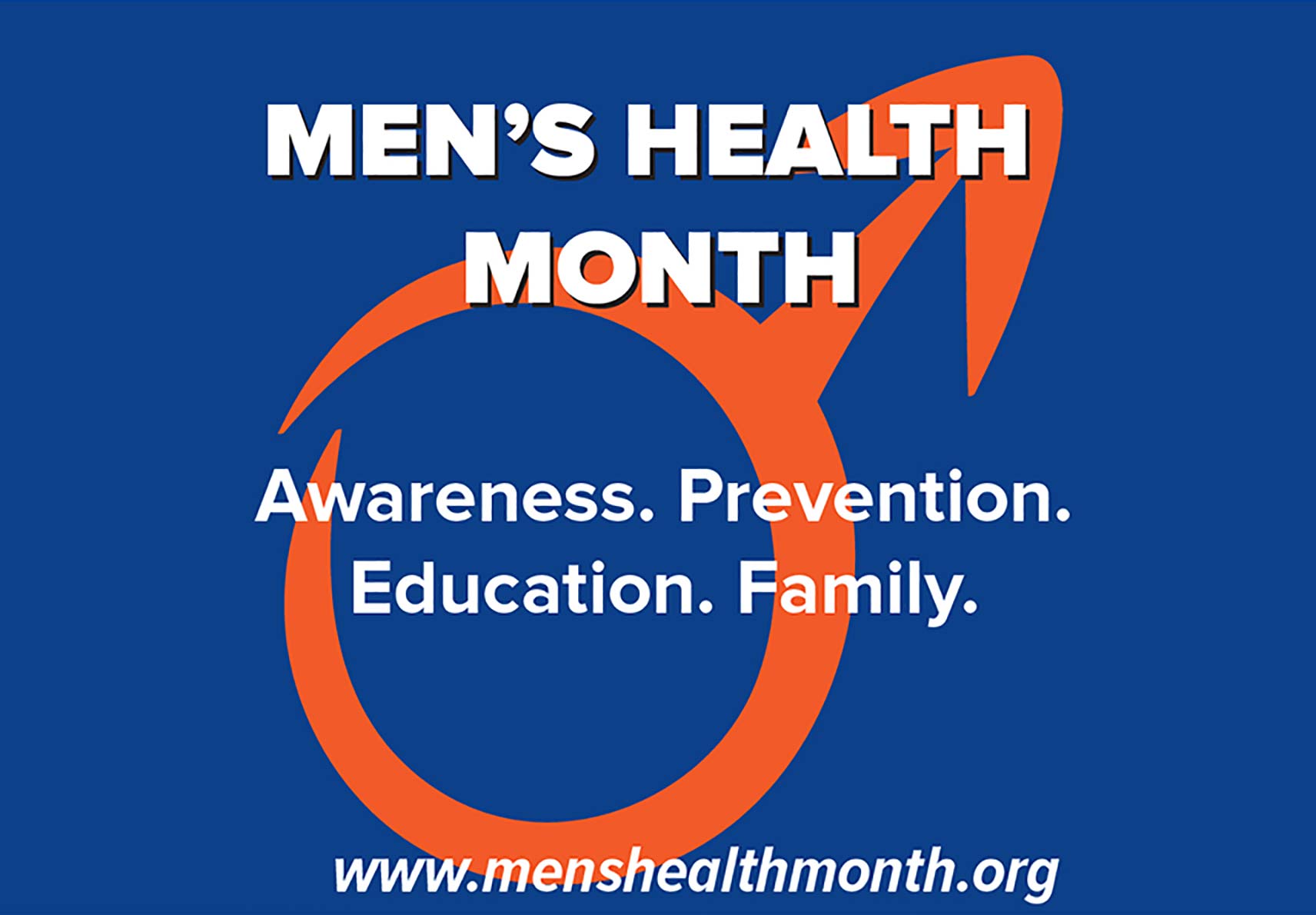
June is Men’s Health Month, a national observance used to raise awareness about health care for men and focus on encouraging men to take care of their bodies by eating right, exercising, and working to prevent disease. The month also encourages the early detection and treatment of diseases, including cancer.
The following cancer screening guidelines are recommended for men at average risk for cancer and without any specific symptoms. Men who are at increased risk for certain cancers may need to follow a different screening schedule, such as starting at an earlier age or being screened more often. Those with symptoms that could be related to cancer should see their physician immediately.
Colorectal Cancer
The American Cancer Society (ACS) recommends regular screenings beginning at the age of 45 with one of six different types of tests:
– Yearly guaiac-based fecal occult blood test (gFOBT)
– Yearly fecal immunochemical test (FIT)
– Multi-targeted stool DNA test (MT-sDNA) every 3 years
– Flexible sigmoidoscopy (FSIG) every 5 years
– CT colonography (virtual colonoscopy) every 5 years
– Colonoscopy every 10 years
All positive tests should be followed up with a colonoscopy.
Consult your doctor about starting colorectal screening earlier and/or undergoing screening more often if they have risk factors:
– Personal history of colorectal cancer or adenomatous polyps
– Strong family history of colorectal cancer or polyps
– Personal history of chronic inflammatory bowel disease
– Family history of hereditary colorectal cancer syndrome
Lung Cancer
The ACS does not recommend tests to check for lung cancer in people who are at average risk. However, they do have screening guidelines for those who are at high risk of lung cancer due to cigarette smoking. Screening might be right for you if you meet the following:
– Are aged 55 to 74 years and in fairly good health, and
– Currently smoke or have quit within the past 15 years, and
– Have at least a 30-pack-year smoking history, and
– Receive smoking cessation counseling if they are current smokers, and
– Have been involved in informed/shared decision-making about the benefits, limitations, and harms of screening with LDCT scans, and
– Have access to a high-volume, high-quality lung cancer screening and treatment center.
Screening is done with a yearly low-dose CT scan (LDCT) of the chest.
Prostate Cancer
Prostate screening recommendations from the ACS recommend that men discuss the risks and benefits of prostate cancer screening with their care team and make an informed decision about whether to be screened or not. The discussion about screening should take place at:
– Age 50 for men who are at average risk of prostate cancer and are expected to live at least 10 more years.
– Age 45 for men at high risk of developing prostate cancer. This includes African Americans and men who have a first-degree relative (father or brother) diagnosed with prostate cancer at an early age (younger than age 65).
– Age 40 for men at even higher risk (those with more than one first-degree relative who had prostate cancer at an early age).
If you decide to be tested, you should have a Prostate-Specific Antigen (PSA) blood test with or without a digital rectal exam. How often you are tested will depend on your PSA result and family history.
Skin Cancer
Skin cancer is by far the most common type of cancer. However, it is one cancer that in most cases can be prevented or detected early. Exposure to ultraviolet (UV) rays, either by natural sunlight or tanning beds, can lead to skin cancer. You can do a lot to protect yourself from damaging UV rays and to detect skin cancer early, including:
– Use a broad-spectrum sunscreen (which protects against UVA & UVB rays) every day
– Avoiding exposure when the sun’s rays are the strongest, from 10 am to 4 pm
– Wearing protective clothing such as a wide-brimmed hat, long sleeves, and sunglasses. These can block out some of the sun’s harmful rays.
– Seeking out shade whenever possible
– Not using tanning booths or sun lamps – these are not a safe alternative to the sun. These emit both UVA & UVB light and greatly increase the risk for all types of skin cancer.
Alliance Cancer Care celebrates the men in our community and we encourage all men to stay up-to-date on their cancer screenings. If you, or a man you love in your life, have recently been diagnosed with cancer, please contact us today.